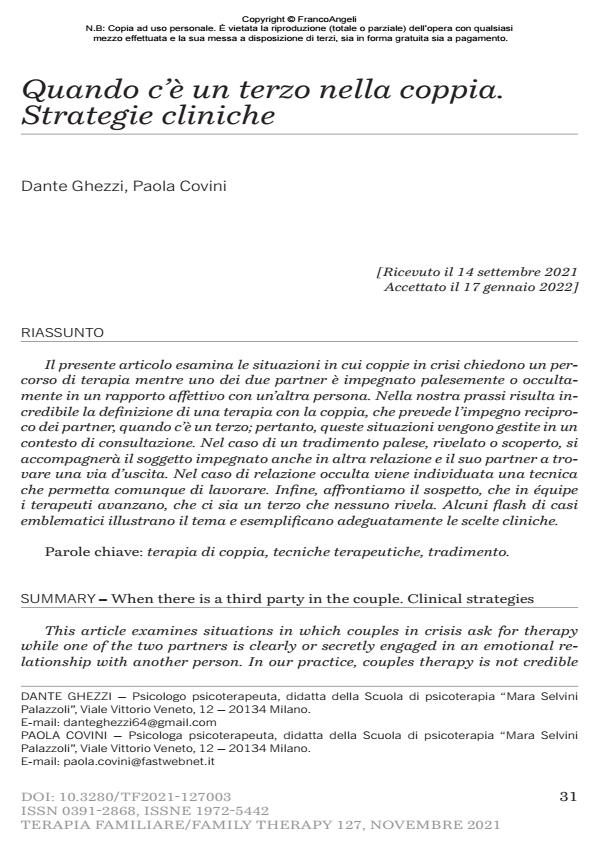When there is a third party in the couple. Clinical strategies
Journal title TERAPIA FAMILIARE
Author/s Dante Ghezzi, Paola Covini
Publishing Year 2022 Issue 2021/127
Language Italian Pages 15 P. 31-45 File size 626 KB
DOI 10.3280/TF2021-127003
DOI is like a bar code for intellectual property: to have more infomation
click here
Below, you can see the article first page
If you want to buy this article in PDF format, you can do it, following the instructions to buy download credits

FrancoAngeli is member of Publishers International Linking Association, Inc (PILA), a not-for-profit association which run the CrossRef service enabling links to and from online scholarly content.
This article examines situations in which couples in crisis ask for therapy while one of the two partners is clearly or secretly engaged in an emotional relationship with another person. In our practice, couples therapy is not credible when there is a third party since the definition of couple implies the mutual commitment of both partners. Therefore, these situations are handled in a consultation context. In the case of an obvious betrayal, revealed or discovered, the person involved in another relationship and his partner will be accompanied to find a way out. In the case of a hidden relationship, a technique that allows the therapeutic work to continue is identified. Finally, the article faces the suspicion, that the therapists arouse in the team, that there is a third party that no one reveals. Some emblematic clinical vignettes of cases illustrate this theme and exemplify the clinical choices.
Keywords: Couples therapy, therapeutic techniques, betrayal.
Dante Ghezzi, Paola Covini, Quando c’è un terzo nella coppia. Strategie cliniche in "TERAPIA FAMILIARE" 127/2021, pp 31-45, DOI: 10.3280/TF2021-127003